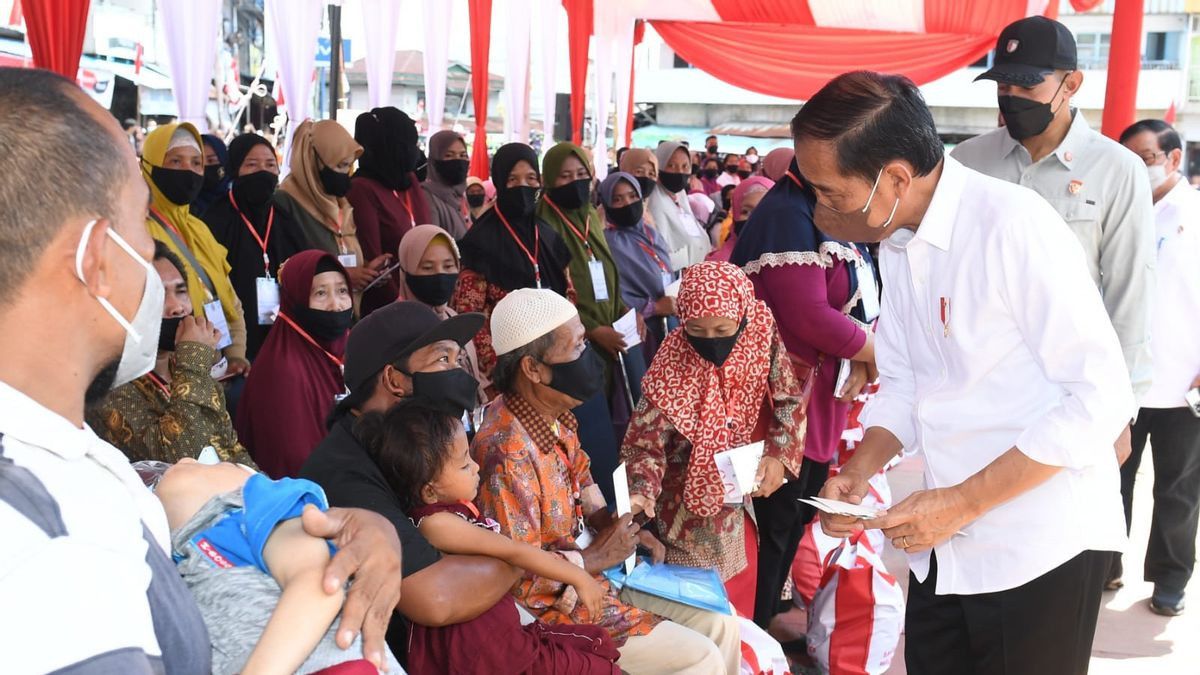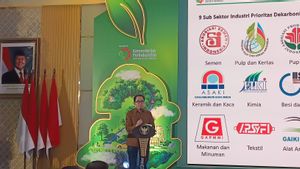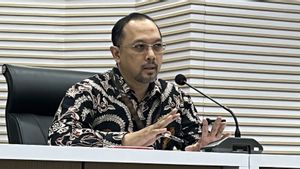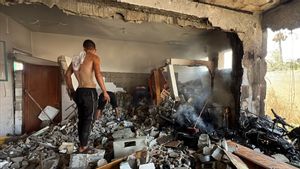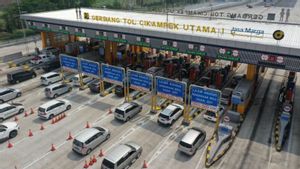JAKARTA - Vulnerable people must be protected with Direct Cash Assistance (BLT) if the government finally decides to increase the price of fuel oil (BBM). This is because the BLT social assistance is considered to be effective and the data can be accounted for.
Research Director of the Institute for Development of Economics and Finance (Indef) Berly Martawardaya said that the increase in fuel prices will also certainly affect food prices, which will immediately be felt by vulnerable people.
"So that the increase in food prices is felt in the lower classes, whose components and proportions of spending for food are high, namely 20 to 40 percent, it needs to be protected, the BLT mechanism is proven to be able to be recorded and calculated," said Berly, Tuesday, August 16.
Moreover, continued Berly, fuel subsidies have greatly burdened the state budget (APBN), even though the impact is not productive.
"Fuel subsidies are regressive, yes, they tend to be enjoyed by the richer, the more cars, the more roads," explained Berly.
Therefore, according to Berly, this is the time for the government to take the hard choice and explain it to the public. "And mitigate the impact on society, the most vulnerable elements," he said.
Meanwhile, the Dean of the Faculty of Economics and Business, University of Indonesia (FEB UI) Teguh Dartanto revealed that the positive trend of economic recovery in Indonesia was facing the issue of energy subsidies as a result of the global economic turmoil. Therefore, it is appropriate for the government to evaluate the fuel subsidy to reduce the fiscal burden.
“The trend of economic recovery will be disrupted due to the global economic turmoil that is heading for a recession. In my opinion, the evaluation of the fuel subsidy is feasible because it can reduce the fiscal burden,” explained Teguh.
Social Protection
In addition, said Teguh, the impact of inflation has been quite burdensome for the community even though fuel has not yet risen. This can be seen from the increase in the price of a number of basic needs in the market.
"This means that from the aspect of social protection or social support, although there has been no evaluation of the price of fuel, the price of basic needs has gone up," he said.
Teguh emphasized that there will be negative impacts when subsidies are reduced and fuel prices are increasingly expensive. Therefore, the government is asked to prepare a social protection scheme to maintain purchasing power. This is because most of the Indonesian economy depends on public consumption, as well as to maintain the positive momentum of Indonesia's economic recovery.
"To overcome the negative impacts, the government must prepare a social protection scheme or compensation for the poor and vulnerable groups for food and energy," he said.
However, Teguh assesses that the current social protection scheme is not sufficiently qualified. The government was asked to increase the amount of funding and the scope of social protection schemes. "Still not enough. The value and scope can be increased,” said Teguh.
Not only that, the government is also asked to update data related to the affected community groups. Because the economic impact this time can be widespread.
“How does this speed up data updating, who has the right or not. This means that this impact is not only in the lower group,” he said.
Teguh also suggested that the government provide a special mechanism for community members to apply as recipients of social assistance. The aim is to help the distribution of social assistance be more targeted and outreach.
“I have always pushed for mechanisms, for example on demand applications for social assistance. That is, people who really suffer not yet registered, are allowed to register. From there there is verification," he concluded.
Previously, the Coordinating Minister for Economic Affairs, Airlangga Hartarto, indicated that the government would review the fuel subsidy distribution system and the option to increase fuel prices.
“In the midst of rising world energy prices, Indonesia is still doing subsidies or taking advantage of fiscal power to absorb some of the increase in food and energy prices. Meanwhile, other countries do "pass-through" which means energy prices are transmitted to the public," said Airlangga.
The English, Chinese, Japanese, Arabic, and French versions are automatically generated by the AI. So there may still be inaccuracies in translating, please always see Indonesian as our main language. (system supported by DigitalSiber.id)
